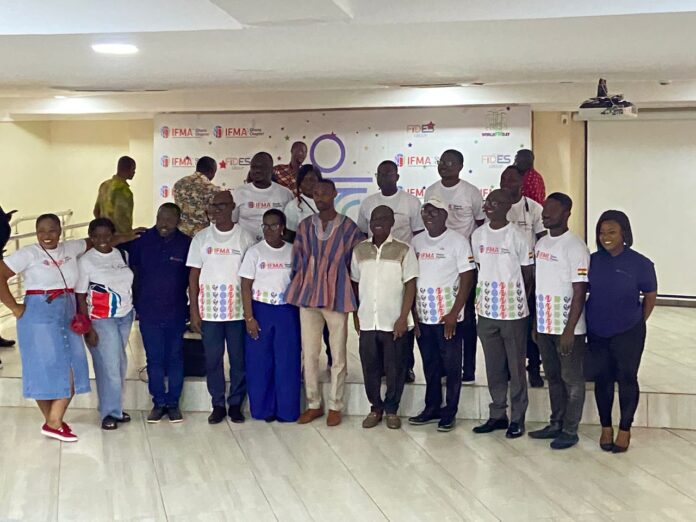The Ghana chapter of the International Facility Management Association (IFMA) says rising temperatures, driven by global warming, demand innovative designs that leverage natural surroundings to enhance building efficiency.
As the impact of climate change threatens building management and maintenance, professionals in the built industry are challenged to build resilience.
The facility managers insist this will ensure infrastructure resilience, functionality, and improve business performance.
The functionality, maintenance, and operations of facilities have been tasked to facility managers to ensure safety and proper functioning.
Climate change and its impact on the environment and the construction industry have attracted expert discussion at this year’s celebration of World FM Day in Kumasi.
The climate change phenomenon is impacting conditions of facility management through weakening-built structures and inflicting abnormal temperatures.
Associate Professor at the KNUST College of Arts and Built Environment, Eric Paul Tudzi, says facility managers should collaborate with architects to integrate sustainable, energy-efficient solutions that maintain comfortable indoor climates and sustain facility strength.
“Climate has introduced a lot into the built environment, and its important facility managers gain knowledge to abreast themselves with the changing landscape. We need them to improve their performance. Climate change has changed room temperature which is increasing and affects productivity.
“It’s important that facility managers ensure that architects come up with designs that take advantage of the natural environment so there can be less cost electricity wise, or the usage of other energy-efficient means to ensure the room remains at a reasonable temperature. We need these changes to improve the productivity of our business and quality of life. It will ensure functionality, sustainability and ensure that communities and infrastructures are in a good state,” he said.
The 2025 World FM Day assembled arts and built environments experts, facility managers and sustainability advocates under the theme; “Resilience in Action: Thriving in a World of Change”.
The theme emphasized the Facility Management (FM) profession and its impact on the built environment.
President of the International Facility Management Association, Ghana Chapter, Sampson Opare-Agyemang, is admonishing the government to commit to improving the capacities of facility management professionals.
“Climate disruptions are more frequent, budgets are tighter, infrastructure are ageing and demands for safety and sustainability are increasing. Facility managers remain the silent enablers of stability, continuity and sustainability.
“There is the need for government to recognize these people and ensure that they are trained professionals that manage our infrastructure built with fortunes. What FIMA has been doing is push for the education of facility management with many of our trainings and workshops,” he said.
Through expert presentations, facility managers explored their roles in national development.
A Senior Lecturer at the Kumasi Technical University, Dr Oti Amankwah, says facility managers’ work goes beyond management of facilities.
“Facility managers over the years have played important yet extensive roles incorporating innovative and technology to improve operations and efficiency, maintaining a healthy environment for occupants, involved in strategic planning for a long-term facility management and development and security management,” he said.





